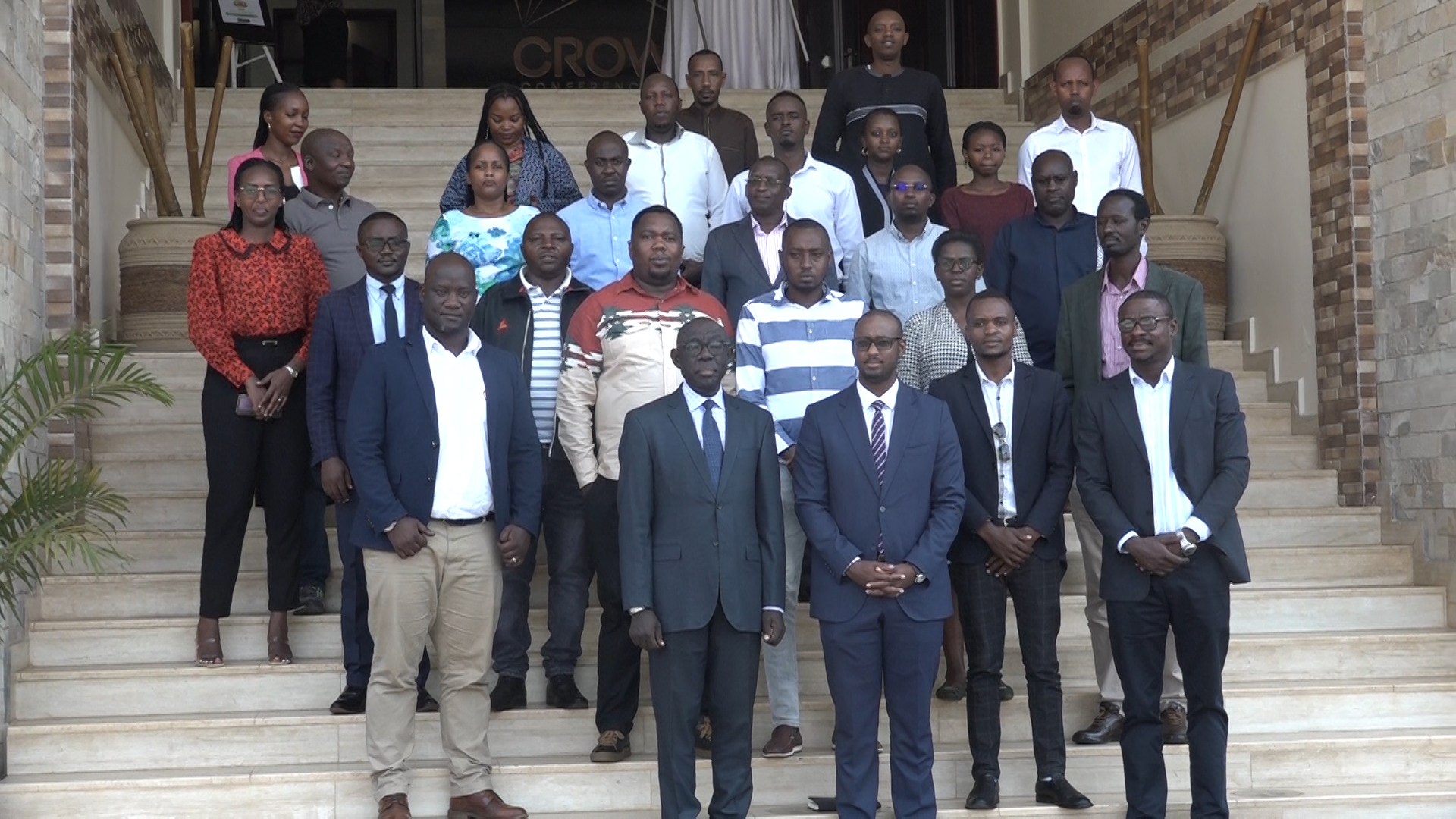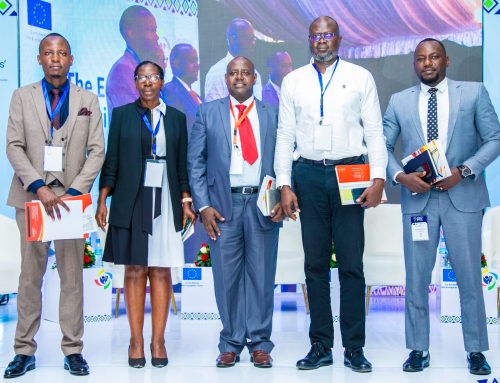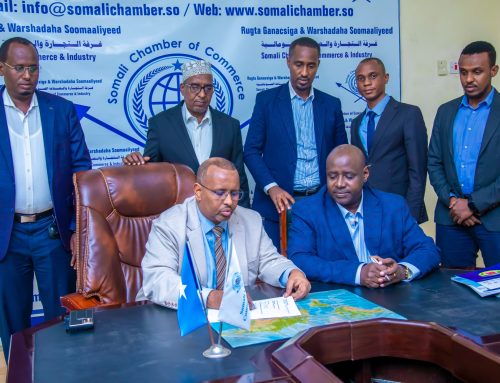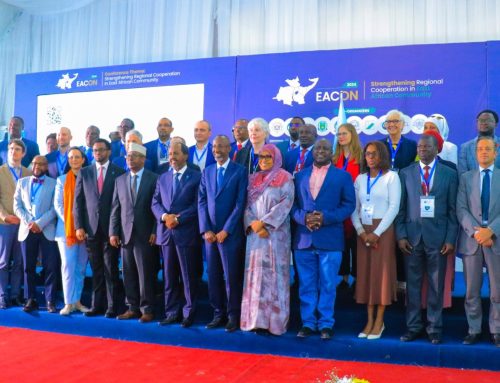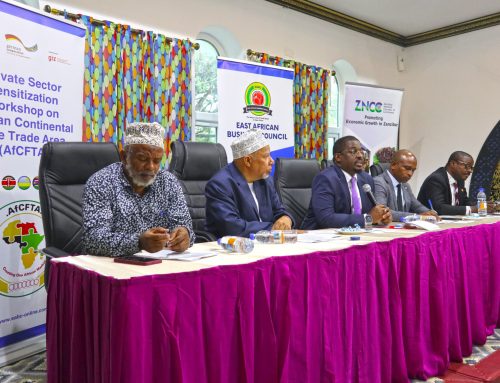- Rwanda Goods Exports to Africa Hit USD. 1.56 Billion
Thursday, 19th January 2023, Kigali, Rwanda: – The East African Business Council (EABC) and the GIZ- Support to East African Market-Driven and People-Centered Integration Programme II kicked started the National Private Sector Sensitization Workshop on African Continental Free Trade Area (AfCFTA) Agreement on Trade in Goods Protocol in Kigali, Rwanda.
In his remarks, EABC Vice Chair, Mr. Denis Karera said, the AfCFTA Agreement envisages to boost intra-African trade through the gradual elimination of over 90 percent tariffs on goods and the removal of non-tariff barriers and trade restrictions on good and services. He urged Rwanda private sector players to educate themselves on AfCFTA and take the leading role in the AfCFTA agenda.
He said the EABC-GIZ Sensitization Workshop on AfCFTA will imparted business people in Rwanda with knowledge on interpreting the AfCFTA Agreement on Trade in Goods in an in a bid to boost Rwanda
The guest of honor Mr Antoine Kajangwe the Director of General of Trade and Industry from Ministry of Trade and Industry, Republic of Rwanda stated that the first and important AfCFTA advantage is the progressive reduction of import duties (tariffs) to zero by 2025 to 90% of the products nearly 6,000 products.
He showcased how Rwandans have started trading under AfCFTA by giving an example of the first shipment of Igere Coffee to Ghana in September 2022 under the AfCFTA Guided Trade Initiative. He said what was interesting is the fact that the product is manufactured by a women-led coffee processing firm in Rwanda.
He challenged other private stakeholders to contact her so they can understand how she made it and the challenges she underwent in exporting to Ghana. Mr Antoine Kajangwe said that Rwanda has already done studies on the market access competitiveness on prioritized sectors under AfCFTA and plans are underway for the private sector stakeholders to validate the findings of the studies. The studies will guide Rwandan private sector in penetrating other African Countries such as DRC, Ghana and Cote D’ Ivoire.
Mr. Kajangwe said sectors such as Manufacturing and agro processing are perceived to be less competitive but under AfCFTA these sectors in Rwanda can be very competitive when compared with other western African countries due to economies of scale.
“Let’s take advantage of the market of the 1.2 billion people with a combined Gross Domestic Product valued at USD3.4 trillion which will be created by AfCFTA” Kajangwe said.
He thanked EABC for coming up with private sector sensitization workshop for private sector.
On his part, EABC CEO, Mr. John Bosco Kalisa urged, “The Government of South Sudan ratify the AfCFTA Agreement.” He elaborated that Rwanda’s goods exports to Africa was USD.1.56 billion in 2021 while imports from Africa stood at USD.3.73 bin. Top exports from Rwanda to Africa include: petroleum & gas, medical instruments, cereals, vegetable oils, sugar, fish and coffee.
The sensitization workshop convened 30 businesses in Rwanda who learnt about AfCFTA Trade in Goods Protocol and its annexes (especially Rules of Origin, Tariff Concession and Non-Tariff Barriers) and implications to businesses in the EAC bloc.
Statistics show, in 2021 intra-Africa goods exports reached USD 82.2 billion, and EAC exports of goods to Africa stood at USD 7.9 billion composing 42% share of EAC total exports of goods to the world (USD 18.7 billion). Top EAC exports to Africa included precious stones, coffee, tea, cement, animal fats, mineral oils & iron and steel.
The private sector players are the main implementors of the AfCFTA Agreement while Governments facilitate trade and investment by creating a conducive business environment. East Africa as bloc has great potential to export vegetables, tea, rice, coffee, sugar, textile products, soap, sesame seeds, edible oils, tubers and milk to the continent.

